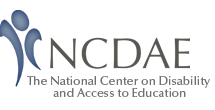Cheatsheets
These one-page accessibility resources, or “cheatsheets,” have been developed to assist anyone who is creating accessible content. These free resources are catered to less-technical individuals, such as faculty and staff.
- Microsoft Office
- Adobe
- Other Accessibility Topics
These cheatsheets are meant to be used as part of a larger training plan, as mentioned in our blog post on How to Use our Accessibility Cheatsheets. For more complete and technical information about these topics, visit our partner WebAIM. If you would like to be notified when additional resources are created, subscribe to our monthly newsletter.
To use these cheatsheets at your institution, reference our Terms of Use.
Microsoft Office
Microsoft Word
Microsoft Word is currently the most common word processor on the market. Word files can also be the starting point for other files, such as PDF and HTML. Having the correct tools to create accessible Word documents is imperative to improving your institution's accessible content.
- Word 2016 (Windows), added January 2018
- Word 2016 (Mac), added January 2018
- Word 2013 (Windows), added June 2014
- Word 2011 (Mac), updated April 2014
- Word 2007/2010 (Windows), updated April 2014
- PDF Conversion in Word 2007/2010 (Windows), added June 2012
Microsoft PowerPoint
Microsoft PowerPoint is presentation software typically used to display slides during face-to-face meetings. However, PowerPoint is also often used on the web and with distance education technologies so files must be accessible to users with disabilities.
- PowerPoint 2016 (Windows), added January 2018
- PowerPoint 2016 (Mac), added January 2018
- PowerPoint 2013 (Windows), added June 2014
- PowerPoint 2011 (Mac), updated April 2014
- PowerPoint 2007/2010 (Windows), updated April 2014
Microsoft Excel
Microsoft Excel is spreadsheet software that allows users to perform calculations and organize data by creating tables and graphs. These complex documents require further steps to ensure the content is accessible.
- Excel 2010/13 (Windows) & 2011 (Mac), added September 2014
Adobe
Adobe Acrobat
PDF files can be created in an assortment of programs, with varied results. Adobe Acrobat is a valuable tool to ensure your PDF documents are accessible to everyone, regardless of how they were created.
- Acrobat XI, added August 2013
- Acrobat X, added June 2012
Adobe InDesign
Many designers use InDesign to develop print and web documents. This handout reviews the steps needed to create accessible PDF documents in Adobe InDesign.
- InDesign CS5.5, added September 2012
Other Accessibility Topics
Accessible Web Content
A general understanding of web accessibility principles can drastically improve the accessibility of a website. There are many accessibility problems that can be quickly and easily identified without the need for a highly technical background. Online accessibility tools can help you identify common web accessibility problems as well.
- Creating Accessible Electronic Content, added June 2013
- Identifying Web Accessibility Issues, added March 2013
YouTube Captioning
Learn how to easily upload or create captions and transcripts for your YouTube videos, and how to edit YouTube's automatically-generated captions.
- Captioning YouTube Videos, updated July 2018
Terms of Use
We encourage institutions to use these cheatsheets in their own accessibility efforts. We offer them at no cost but you must maintain the GOALS/ NCDAE branding while distributing them. We also recommend you link directly to our cheatsheets, instead of hosting them locally on your own site, because we are continually updating them and want to ensure you get the most up to date information. For more information visit our Copyright & Terms of Use page.
Made possible by a grant from the Fund for the Improvement of Postsecondary Education (FIPSE), U.S. Department of Education. No official endorsement should be inferred.

